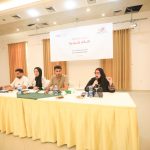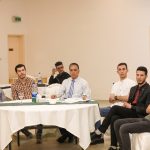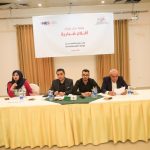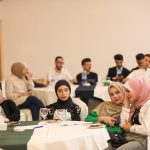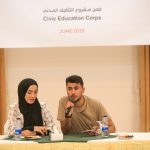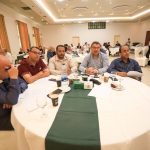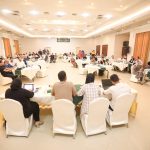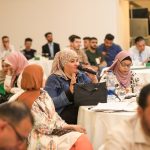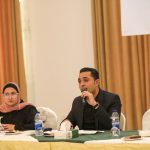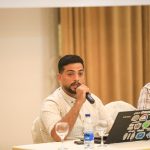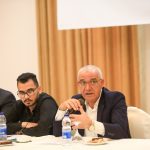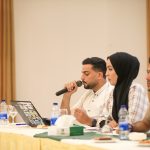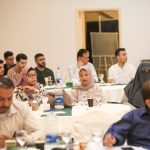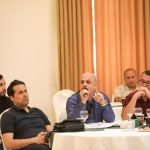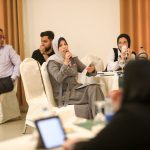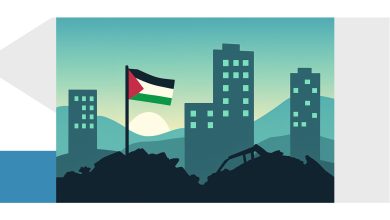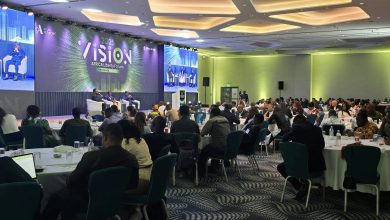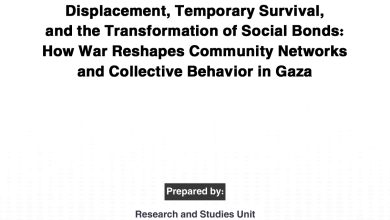Young Writers: PalThink Civic Education Corps Produce and Present Research Papers
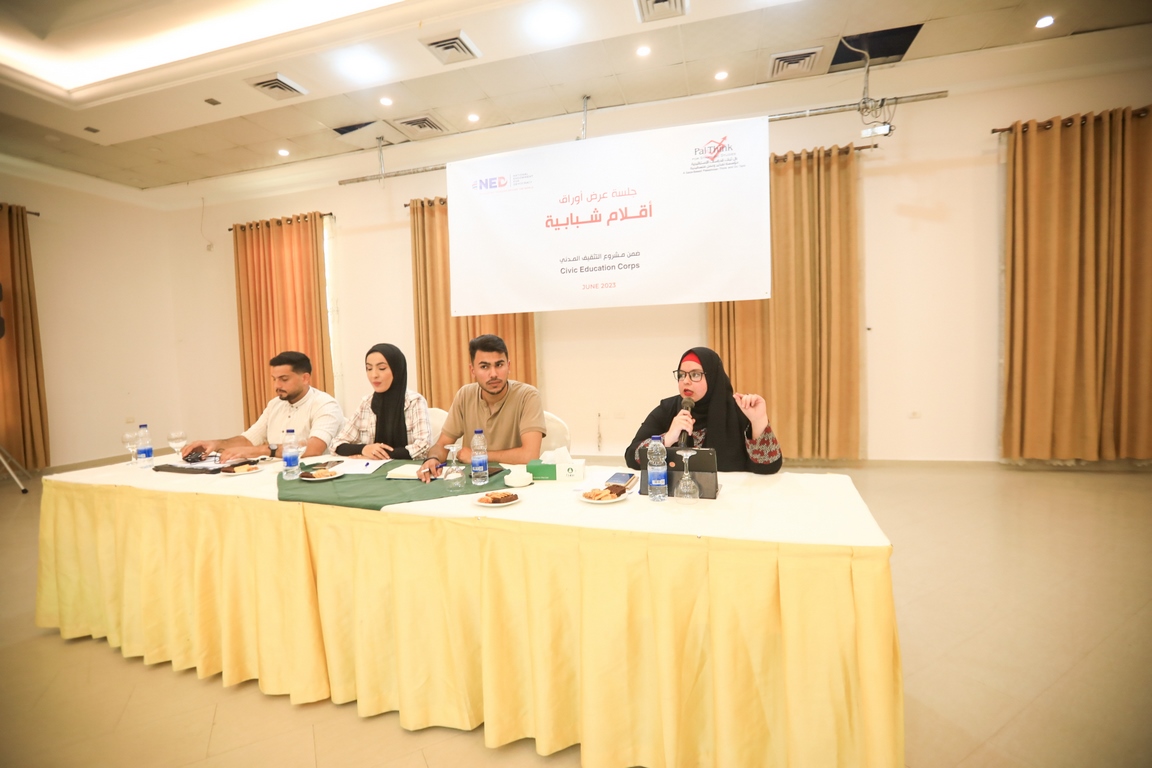
PalThink for Strategic Studies recently organized an insightful workshop to discuss policy papers produced by the participants of the “Civic Corps – Phase Two” project, generously funded by the National Endowment for Democracy (NED). The event gathered approximately 90 intellectuals, civil society representatives, researchers, and passionate youth activists.
The session commenced with an opening address from the project manager, Sally Al-Sammak, who warmly welcomed all attendees. She emphasized PalThink’s commitment to empowering young individuals and honing their skills to actively engage in the decision-making process. “Among the most crucial skills,” she remarked, “is training young people in research and policy writing, enabling them to scientifically present and discuss the societal challenges they face, leading to proposed solutions.”
Director of PalThink, Omar Shaban, echoed this sentiment, extending his warm welcome to the participants. He emphasized the importance of continual support for the youth and stressed the need for civil society institutions to empower young individuals in all aspects of life. “We aim to empower our youth to play a significant role in resolving issues and crises, rather than being mere bystanders,” he asserted.
The workshop featured two sessions, during which five papers were presented. The first session addressed the topics of “Poverty among Women in the Gaza Strip between Economic Reality and the Absence of Gender Justice” and “The Development of Civil Society Organizations in the Gaza Strip and the Repercussions of the Division.”
In the discussion of the first paper, young scholar Al-Qasim Afana delved into the political, cultural, and social dimensions of poverty among women. He highlighted indicators and statistics that illuminate the extent of poverty faced by women, including the impact of unemployment on Palestinian families. Furthermore, he explored the relationship between the absence of gender justice and poverty among women, shedding light on the role of Palestinian laws in fostering fairness, job opportunities, and reduced poverty for women.
In the second paper, presented by young researcher Ashraf Sukkar, the focus was on the role of civil society institutions in promoting integrity, transparency, and enhanced relations between citizens and the government. The paper also delved into the challenges faced by these institutions amid political division and the occupation’s hindrance of funding and support opportunities.
The second session saw the presentation of three papers. Young scholar Aseel Safi presented her paper titled “Freedom of Expression in the Gaza Strip: Between Legal Guarantees and Application.” She eloquently discussed legal protections for freedom of expression, the reasons behind its constraints, and the political prosecutions arising from these restrictions. Additionally, she explored the space available for writers to express their political and societal viewpoints, as well as the interventions of civil society institutions to expand this space.
Abdullah Al-Baba presented the paper “The Role of Palestinian Media in Political Change,” which analyzed how media influences public opinion and shapes the political landscape, while also examining the impact of political division on media’s role. The paper delved into the messages conveyed by the media in a political context and their impact on citizens’ political attitudes.
Lastly, young researcher Nour Abed presented the paper “The Contribution of Social Media Sites to the Development of Political Practice among Young People in the Gaza Strip.” She explored the reasons motivating young people to express their political positions on social networking sites, considering the diverse political parties present. The paper also highlighted the campaigns initiated by young individuals to voice their positions and the media tools used to engage the public on various Palestinian societal issues.
Following the enlightening sessions, participants engaged in a vibrant discussion about the papers’ content and provided valuable observations and recommendations. The attendees lauded the efforts of the Civil Education Corps’ young men and women, acknowledging their impressive ability to present and discuss papers in a scientifically rigorous manner. It was evident that the youth had not only mastered the art of writing but also excelled in effectively conveying their perspectives and ideas to the wider audience.
The event concluded with a sense of pride and accomplishment, as the Civil Education Corps participants showcased their dedication, knowledge, and commitment to creating a positive impact on Palestinian society through their research and academic excellence. PalThink for Strategic Studies extends its heartfelt appreciation to all involved and looks forward to witnessing further contributions from these talented young writers.

